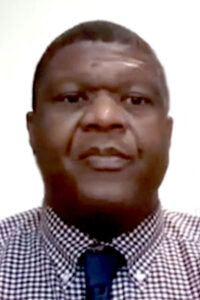
As pulmonary and critical care fellows learn to master the technical aspects of patient care, there is also a need for instruction in the “soft skills” of health care delivery.
A qualitative study of nearly 200 patients found that when describing their best and worst encounters with a physician, the top qualities that patients listed as important—confident, empathic, humane, personal, forthright, respectful, thorough—related to behavior rather than technical know-how, said Shyoko Honiden, MD, MSc, Associate Professor of Medicine, Yale University, School of Medicine.
“One patient put it this way: ‘We want doctors who can empathize and understand our needs as a whole person. We want to feel that our doctors have incredible knowledge in their field, but every doctor needs to know how to apply that knowledge with wisdom and relate to us as plain folks who are capable of understanding our disease and treatment,’” said Dr. Honiden in Training the Well-Rounded Fellow: Beyond Patient Care during CHEST 2021.
Session panelists shared firsthand experiences and resources for incorporating quality improvement, communication, diversity and inclusion, and interpersonal skills training into fellowship programs. Dr. Honiden discussed implementing a cross-specialty communication curriculum using a workshop model that provided opportunities for fellows to observe and practice soft skills.

Dr. Honiden credits the multidisciplinary approach as a key component to the success of the training.
“Faculty participation across the different fields allowed us to foster in a very tangible way appreciation for others, respect for others, the value of different viewpoints,” she said, while noting the extent to which the skills taught in the workshops are being adopted in clinical practice is difficult to measure.
Uma S. Ayyala, MD, discussed lessons learned from establishing a continuous quality improvement (QI) curriculum at Baylor College of Medicine, where she is Assistant Professor of Medicine, Section of Pulmonary, Critical Care, and Sleep Medicine.
QI training is now required by the Accreditation Council for Graduate Medical Education, and it helps develop lifelong skills, including teamwork, she noted.
“QI is a component of the bigger lens of health system science,” Dr. Ayyala said. “This would be the process of science and health care delivery and looking at improving the quality of care for our patients, looking at high-value care and how to mitigate and reduce health care disparities.”

Dr. Ayyala and her colleagues also found multispecialty collaboration to be beneficial.
“The keys to success for any curriculum, especially this curriculum, is setting achievable goals, accountability for the fellows and the faculty involved, and institutional support,” she said.
During the session, Demondes Haynes, MD, FCCP, Professor of Medicine and Associate Dean for School of Medicine Admissions, The University of Mississippi Medical Center, addressed the need to formalize diversity and inclusivity training for fellows.
“We want to decrease health care disparities and make sure that we are training culturally competent physicians, and to do that, it has to be integrated into the curriculum,” he said.
While overall health has improved for Americans, disparities persist among many populations, he said. This includes racial and ethnic minority groups, the LGBTQ+ community, and rural residents. Approximately 20% of Americans living in rural areas are less likely than those living in urban areas to receive preventative care and are more likely to experience language barriers.

To combat these disparities, Dr. Haynes recommends all fellows undergo training on implicit bias and microaggression. Additional training on community engagement, social determinants of health, cultural competency, language and ethnic differences, and LGBTQ+ understanding also is encouraged.
“These aspects are extremely important, not just for those of us who may work in more underserved areas,” Dr. Haynes said.
Wes Ely, MD, MPH, FCCP, Professor of Medicine, the Grant W. Liddle Chair in Medicine, and Co-Director for the Critical Illness, Brain Dysfunction, and Survivorship Center, Vanderbilt University Medical Center, highlighted the role of five concepts—beneficence rather than benevolence, culture change, relationships, compassion, and spirituality—in providing critical care with humanity.
“Each of these are things that I think can be taught and must be taught to create the best and most well-rounded fellows to help lead us into the next era of critical care,” he said.
ACCESS SESSIONS ON DEMAND
Registered CHEST 2021 attendees have continued access to 200+ educational sessions until October 1, 2022. Watch sessions on your own schedule and earn up to 50 CME credits/MOC points.
Don’t forget to claim your credit! The deadline is December 15, 2022, at 11:59 pm CT.





